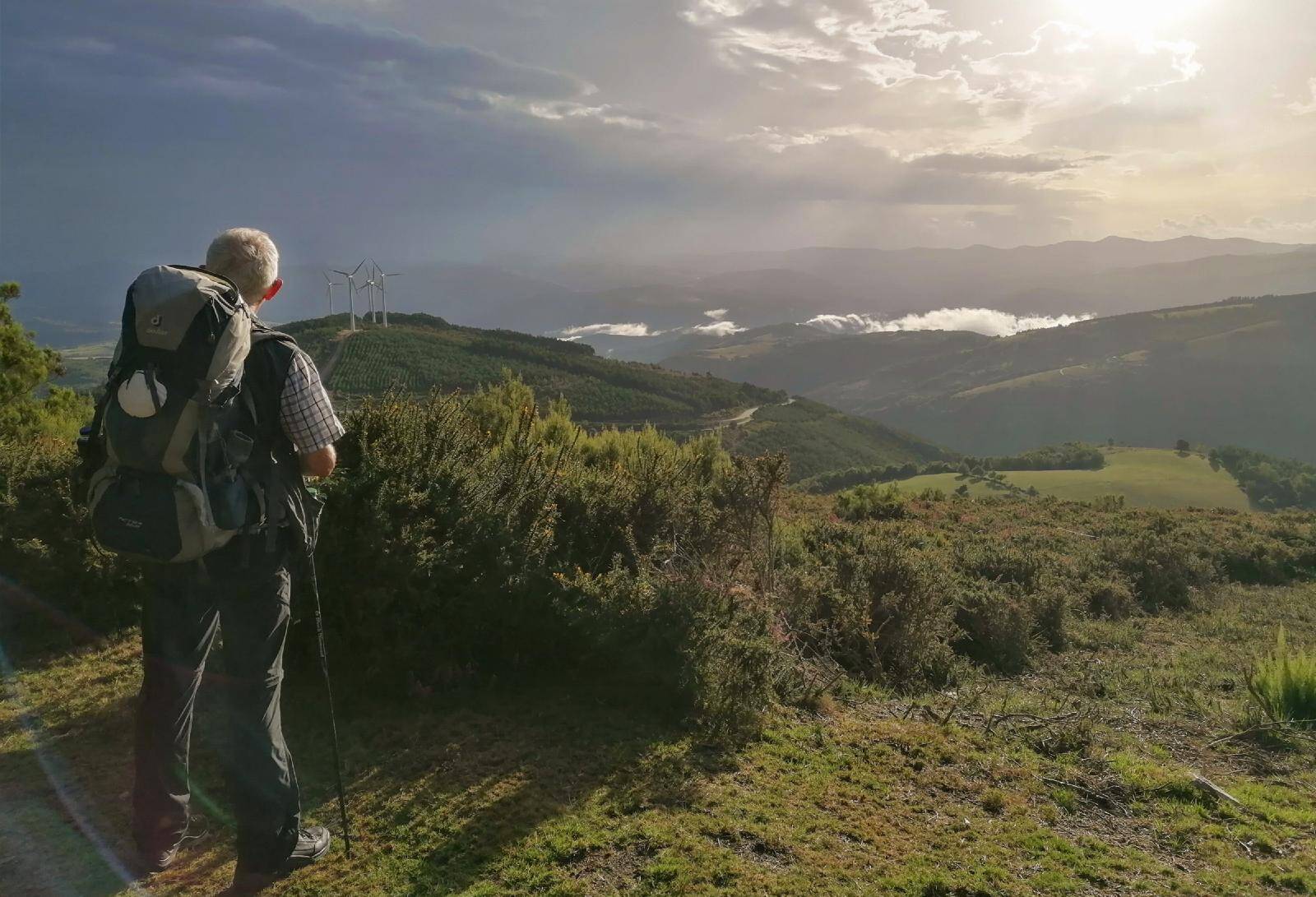Camino to Santiago de Compostela visited by record number of American pilgrims in 2023
SANTIAGO DE COMPOSTELA — U.S. pilgrims made up the largest international group walking the famous Camino to Santiago de Compostela, Spain, in 2023. The Camino de Santiago, or Way of St. James, welcomed over 32,000 American visitors in a record year for the ancient pilgrimage site.
Interest in the Camino de Santiago — a network of pilgrim routes across Europe that lead to the Tomb of Saint James — is greater than ever, with the worldwide number of pilgrims walking the site approaching half a million. Not everyone, however, walks because of religious reasons.
IN CASE YOU MISSED IT: Trekking Camino de Santiago with Father Anthony
According to the statistics published by the pilgrims’ office, 446,035 pilgrims from all over the world arrived in the City of the Apostles last year. With 44% of the pilgrims (almost 200,000) being Spanish, Americans were the most common international visitors (32,063), followed by Italians (28,645) and Germans (24,342). The Portuguese, French, British, Mexicans, South Koreans, and Irish were also represented in the top ten, followed by pilgrims from destinations as far as Australia, Brazill and Canada.
The Camino also welcomes pilgrims from unusual places — unusual for the fact that they are geographically very far from Spain and the journey is costly — two arrivals each came from Laos and Myanmar, and one person each from Lesotho, Senegal, Somalial and the Solomon Islands. There were three arrivals from citizens of the Vatican. In terms of gender, women were in the lead.
Pilgrims’ records are counted by certificates handed at the pilgrims’ office in Santiago de Compostela. Those seeking certificates need to prove that they had covered the last 62 miles (100 kilometers) on foot or the last 124 miles (200 kilometers) by bike with the stamp sequences on their pilgrim’s identity card. However, it was not clear whether the cyclists were conventional pedalers or e-bikers. Traditionally, there are no fixed criteria for wheelchair users (198 arrivals).
In the 1980s and early 1990s, the figures were still below the 10,000 mark. The Holy Years of Compostela, when the July 25 feast of St. James’ falls on a Sunday, always boosted the number of pilgrims: in 1993, there were almost 100,000; in 1999, 150,000; in 2004, 179,891 and in 2010, 272,417.
According to the Pilgrims’ Bureau, 42.6% of arrivals cited “religious reasons,” 34.7% cited “religious and other reasons” and 22.7% were walking for “non-religious reasons.”
Over the years, Camino pilgrimages have become a fashionable lifestyle event. The backpack transport offered by the relevant providers makes the hardships easier. Organizers also offer “The last 100 kilometers to Santiago” as an all-around carefree package with luggage transfer, route descriptions, hotel bookings and emergency assistance.
Pope Francis said in 2021 that pilgrims who embark on the long journey of the Camino to Santiago de Compostela remind others of the spiritual journey all Christians make through life toward heaven.
In a letter marking the opening of the Holy Door at the Cathedral of Santiago de Compostela, published Dec. 31, 2020, sent to the now-retired Archbishop Julián Barrio Barrio of Santiago de Compostela, the pope said that just like countless pilgrims who embark on the famed Camino toward the tomb of St. James the Great each year, Christians are “a pilgrim people” who do not travel toward “a utopic ideal but rather a concrete goal.”
“The pilgrim is capable of placing himself or herself in God’s hands, aware that the promised homeland is present in the one who wished to make camp amid his people, to guide their journey,” the pope wrote in the letter.
This article was written by KNA International, an English-language news service covering the Catholic Church in Germany, Austria, Switzerland, and Luxembourg. OSV News and CNS contributed to this report.
Featured image: A pilgrim stands on a mountain on Sept. 4, 2023, and looks into the vastness of the Galician landscape during his hike on the “Camino Primitivo” (one of the paths of the Camino de Santiago) in Spain. (OSV News photo/Jörg Meyrer, KNA)


